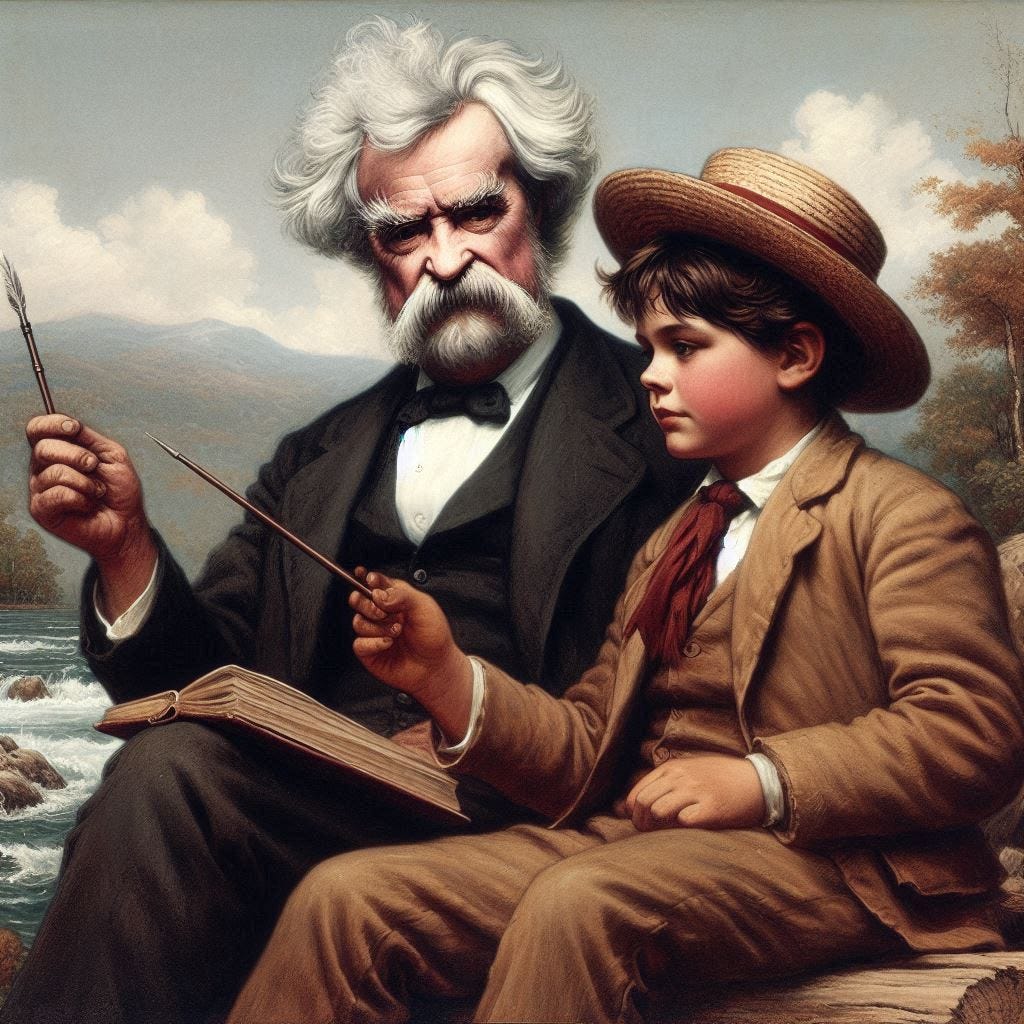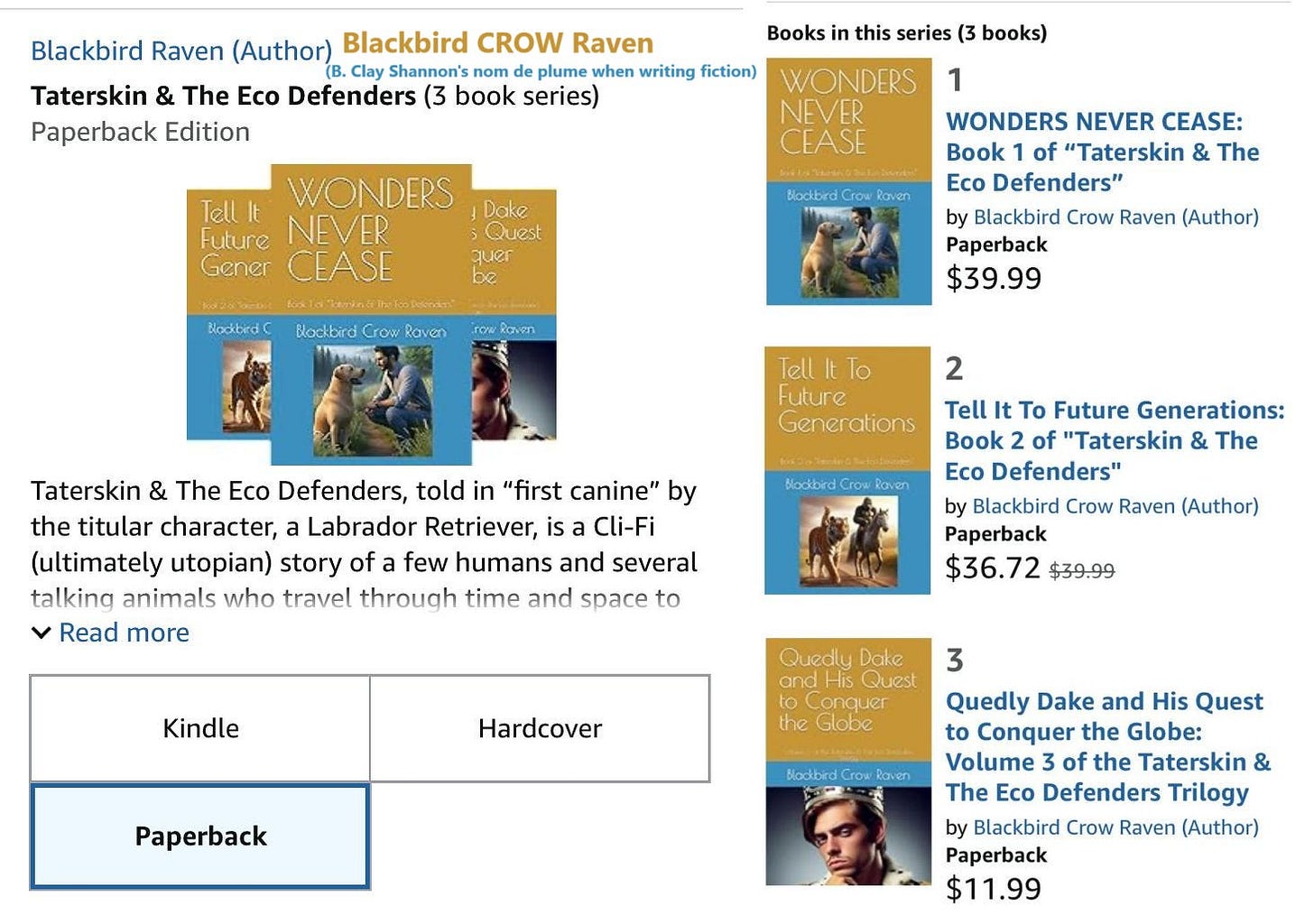The Mysteries of History (February 18 Edition)
Huckleberry Finn, The White Rose, and WikiLeaks/Manning
“Those who cannot remember the past are condemned to repeat it.” — Spanish-American philosopher George Santayana, 1905
1885 — “Adventures of Huckleberry Finn” Published in America
image generated using Bing Image Creator
One hundred and forty years ago, Mark Twain’s sequel-of-sorts to his 1876 novel “The Adventures of Tom Sawyer” was published (in America, that is; “Huck” had already been published on December 10, 1884, in England).
What follows is an excerpt from the chapter 1885: Ears Flared, Trunk Raised, and Trumpet Blaring of my book Still Casting Shadows: A Shared Mosaic of U.S. History, Volume 1: 1620-1913
“A truly stupendous piece of work, perhaps the greatest novel ever written in English.”—H.L. Mencken, 1913 (referring to Mark Twain’s “The Adventures of Huckleberry Finn”)
“All modern American literature comes from one book by Mark Twain called Huckleberry Finn.”—Ernest Hemingway
. . .
Whether you concur with Mencken and Hemingway or not, none can deny the impact that Mark Twain’s novel Adventures of Huckleberry Finn has had on American letters and culture. Released in America on February 18th, 1885, “Huck Finn” was set in the 1840s of Twain’s boyhood in Hannibal, Missouri (although he calls the town “St. Petersburg” in the book).
Huck Finn was banned in many places shortly after its publication, something which made its author gleeful, knowing that such a stricture would actually result in more notoriety and curiosity about the book, and thus more sales.
As a boy, Sam Clemens had been saved from drowning by the Clemens’ slave girl Jennie. This event may very well have had an important impact on Twain’s view of racism and slavery, which are major themes in “Huck Finn.”
On the left is my paternal great-grandmother Gertie Bailey Shannon (born Kansas 1883) and her son, my paternal grandfather, Theodore Roosevelt Shannon (born rural northern California 1902); on the right is my maternal grandfather Albert Benjamin Lee Kollenborn (born rural northern Missouri 1907)
Questions: Have you read “Huck Finn”? Have you read any other Twain works? Do you think “Adventures of Huckleberry Finn” should be banned because of its use of “The N Word”? Why or why not?
1943 — Nazis Arrest Youth Group Members
public domain images from wikimedia commons (top: Hans Scholl, middle: Sophie Scholl; bottom: Christoph Probst)
Hans Scholl had at one time been a member of the Hitler Youth, but grew disenchanted with it once he realized what its true aims were. He quit that group and formed a new, antithetical one, called Weisse Rose (White Rose), which spoke out against and exposed the Nazis for its atrocities. Hans’ sister Sophie, on discovering her brother’s covert activities, joined him in the cause. The Scholls were caught by the Nazis after a janitor ratted them out when he saw Hans and Sophie leaving a suitcase containing copies of their anti-Nazi pamphlets in the main building of the University of Munich, where the swamper worked. The pamphlet contained the incendiary admonition:
The day of reckoning has come, the reckoning of our German youth with the most abominable tyranny our people has ever endured. In the name of the entire German people we demand of Adolf Hitler’s state the return of personal freedom, the most precious treasure of the Germans which he cunningly has cheated us out of.
The Scholl siblings and another member of White Rose, Christoph Probst, were all beheaded five days later, on February 23, 1943, for treason: first Sophie, than Hans, and finally Christoph. Originally the plan was to hang them, but at the last minute, the authorities decided to use the guillotine rather than the gallows, as they didn’t want a public exhibition of their execution to turn them into martyrs.
Hans’ last words were, “Es lebe die Freiheit!” (Long live freedom!).
Questions: How many members of the White Rose were executed by the Nazi government? Are any former members still living? Do you think the Scholls and Probst should have just “kept quiet” while Hitler was wreaking mayhem?
2010 — First WikiLeaks Release of Material from Bradley/Chelsea Manning
public domain images from wikimedia commons; Bradley Manning left, as Chelsea Manning right
Bradley Manning (who since then has become Chelsea Manning) was working as an intelligence analyst for the U.S. Army when he came across many documents which revealed questionable-to-atrocious actions on the part of the U.S. government and its military. Manning wanted to sound the alarm in an effort to right some of these wrongs or prevent further ones from taking place. To do so, he downloaded these files to a CD innocuously labeled “Lady Gaga.”
Manning tried to interest the top newspapers, namely the New York Times and Washington Post, in his material, but both apparently found the information too boring to print or too dangerous to deal with (deemed “not fit to print”). Manning then turned to WikiLeaks, who also at first did nothing with the material. The Whistle Blower finally made an impression on this date in 2010 when WikieLeaks published some information Manning had sent them about the leaders of Iceland being harassed (or “bullied”) by U.S. officials. Other, more significant, leaks later come to light about the prosecution of the wars in Iraq and Afghanistan.
Just three months later, in May, Manning was arrested and sentenced to 35 years in prison. Three days before making way for Trump’s first term as President, outgoing President Obama commuted Manning’s sentence.
Questions: Do you think what Manning did was right? Do you normally support, or condemn, whistle blowers? Have you ever “blown the whistle” on somebody? What other whistle blowers, from modern times or the past, are you aware of? Do you think Manning’s punishment was too harsh, or too lenient? Would you go to a speech Manning were to give?










